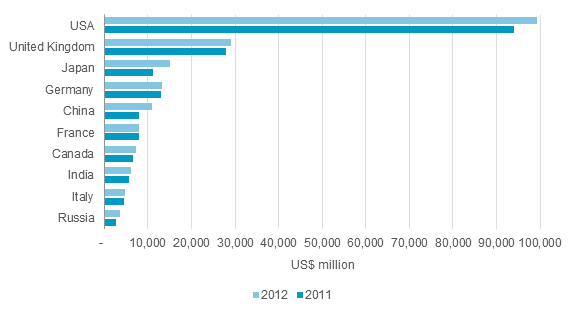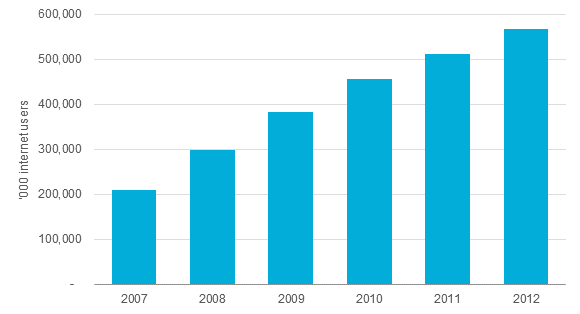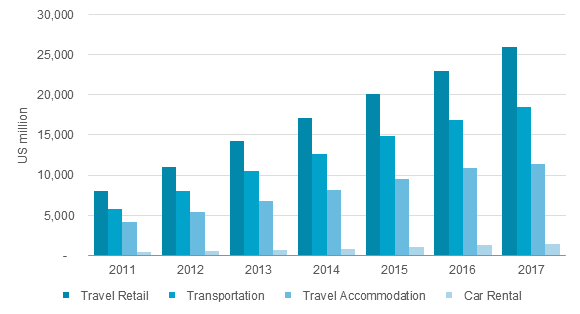 Emerging markets have so far lagged behind advanced economies in terms of online travel sales, which have been traditionally dominated by North America and Western Europe. However, a sea change is taking place in online travel in many of these markets, and China is leading the way.
Emerging markets have so far lagged behind advanced economies in terms of online travel sales, which have been traditionally dominated by North America and Western Europe. However, a sea change is taking place in online travel in many of these markets, and China is leading the way.
Given the steady economic growth in China and the enthusiasm of Chinese consumers in embracing technological innovations such as social media, smartphones, e-commerce and mobile commerce, there is no doubt that the rise of the online travel market in the country will be sharp over the next five years when we will see China challenge the UK and Japan to become the second biggest market in the world for online travel sales after the US.
Online Travel Retail Sales in Key World Markets 2011-2012
Source: Euromonitor International
The number of internet users in China in 2012 amounted to 568 million, propelling the country to the top of the world rankings, with penetration among Chinese households increasing to 42% by the end of 2012, up from just 2% in 2000. The number of Chinese people now accessing the internet through their mobile phones was estimated to have reached 420 million in 2012.
As a consequence, the Chinese travel industry is undergoing transformational change, evolving from a traditional market into one that is more technologically tuned in. Chinese consumers are keen users of social media and smartphones, while websites and blogs play a significant role in travel planning, and online bookings are growing fast. Added to this, Chinese travel companies are more adept than ever at targeting the burgeoning ranks of new online consumers.
Internet Users in China 2007-2012

Source: Euromonitor International
Online travel sales recorded a strong 36% rise in China in 2012 and are expected to continue to grow at an annual average of 18% over the next five years, benefiting from the positive trend for e-commerce combined with the rise in independent travel.
Online Travel Sales in China 2011-2017
 Source: Euromonitor International
Source: Euromonitor International
Note: The chart refers to transportation, travel accommodation and car rental online value sales through intermediaries and direct suppliers. There is some double counting between value sales in travel retail and in the other three online travel categories.
Meta search engines are also gaining ground in China. Qunar, the leading Chinese meta search engine for travel services, generated advertising revenues of US$160 million in 2012, with air bookings accounting for the majority of this.
Moreover, Qunar, which belongs to Chinese internet search giant Baidu, owns the most popular travel app in China, which was downloaded 16 million times in 2012 alone.
Tuangou, China’s leading company in flash sales, continued to see robust growth in 2012. Discounts, coupons and offers through Tuangou were very popular among tourism players in 2012, including discounted offers from online travel retailers Ctrip and Lvmama.
The rapid rise in online travel sales in China over the next five years is pretty much a certainty, making it a key market for global online travel players. It is not without its challenges, however, and foreign players looking to gain a piece of the action will need a sound knowledge of the peculiarities of the Chinese legislative environment as well as the country’s consumers if they are to operate in this market successfully.
Angelo Rossini, travel and tourism analyst, Euromonitor International
Source travelmole.com











